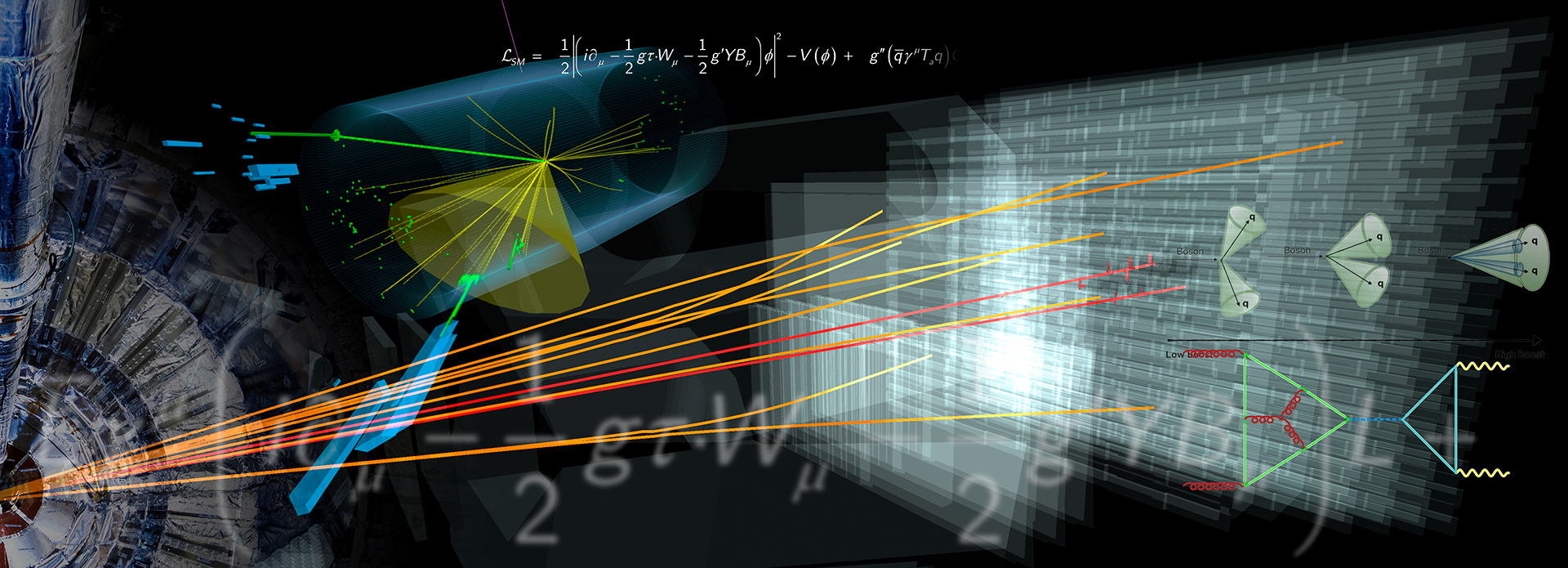C3a: New sources of flavour- and CP-violation at high transverse momenta
| Principal Investigators | |
|---|---|
| Dr. Monika Blanke | Karlsruhe Institute of Technology |
| Prof. Michael Krämer | RWTH Aachen University |
| Prof. Margarete Muehlleitner | Karlsruhe Institute of Technology |
Subject
New Physics (NP) at the TeV scale generally introduces new flavour- and CP-violating in- teractions. While such interactions are mostly ignored in the literature on high-p⊥ physics, they can have a significant impact on the phenomenology of new particles produced at the LHC. For instance, experimental limits on the mass scale of new particles can be softened in the presence of flavour-violation. In addition, new flavour- and/or CP-violating signatures arise for which targeted searches can be performed, with an improved sensitivity relative to the generic NP searches assuming flavour-conservation. For the correct interpretation of the data and proper identification of the effects arising form the new interactions, high precision predictions of the involved observables are indispensible.
The goal of this project is hence to study the phenomenological implications of flavour- and CP-violating interactions for high-p⊥ NP searches by:
- developing benchmark models with large flavour- and/or CP-violating interactions that are in agreement with the available indirect search constraints;
- reevaluating the existing high-p⊥ limits in the presence of flavour-violation;
- identifying new flavour- and/or CP-violating signatures arising in these models;
- supporting our predictions by precision calculations of cross-sections and differential distributions.
Topics
- Top Partner Models
- build simplified models for flavour-violating top partners, both scalar and fermionic § re-interpret existing experimental limits
- investigate new flavour-violating signatures
- map simplified models to top-EFT framework (project B2b)
- Top-Flavoured Dark Matter
- extend framework to include simplified models with different spin-statistics § investigate novel flavour-violating high-p⊥ signatures, e. g. tb+MET
- discriminate between different models using differential distributions
- Simplified Models for Flavour Anomalies
- constrain parameter space by re-evaluating existing high-p⊥ limits
- explore new flavour-violating high-p⊥ signatures implied by coupling structure
- relate parameter space testable at the LHC to deviations observed in flavour experiments
- CP-Violation in Weakly Coupled Models
- construct weakly coupled models that allow for large CP-violating effects at high-p⊥
- develop benchmark observables targeted to the measurement of the underlying CP-phases § quantify LHC discovery potential for new CP-violating interactions
- Precision Tools for LHC Phenomenology
- perform precision calculations for simplified and UV-complete NP models with flavour violation
- provide re-interpretation tools for novel LHC signatures
